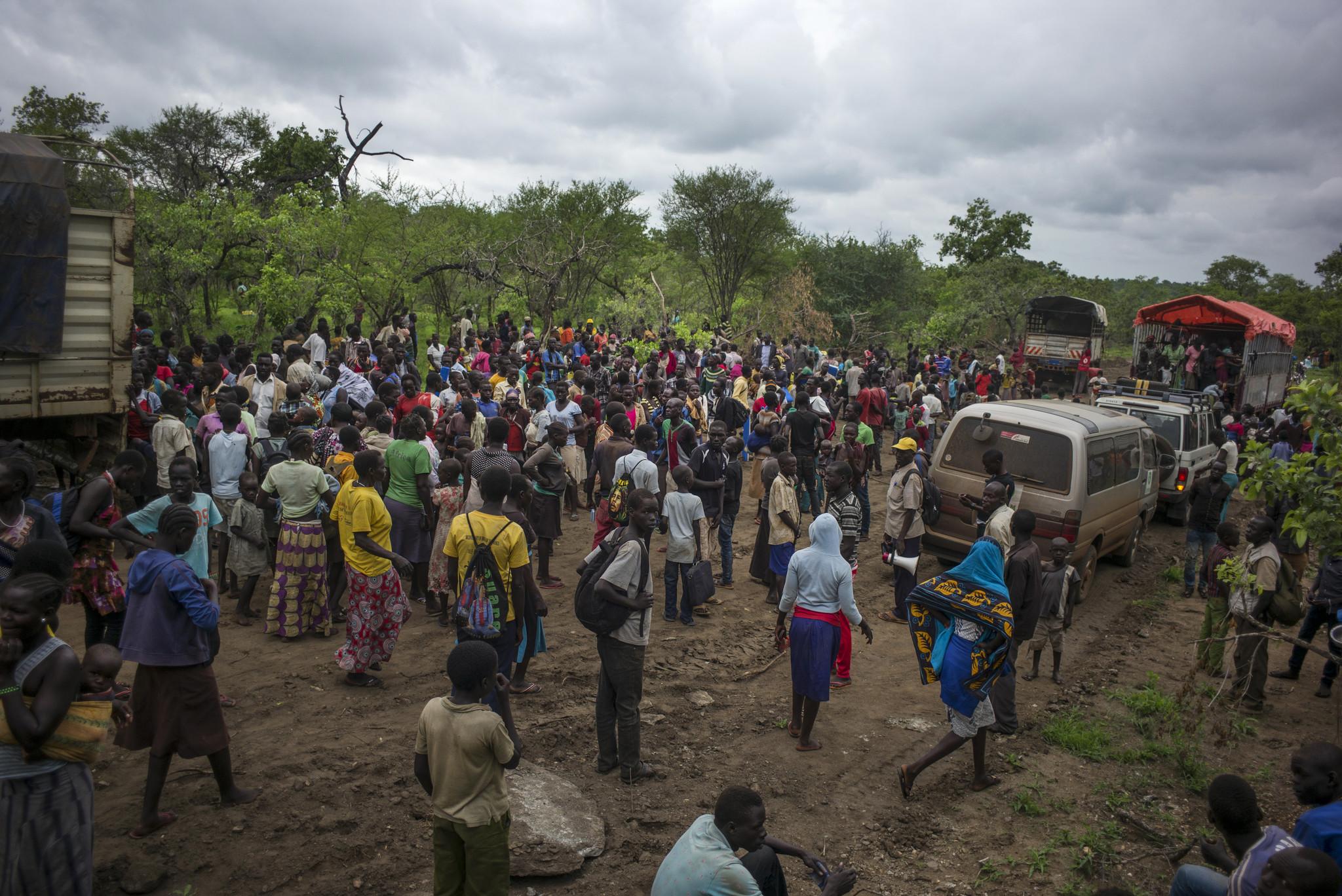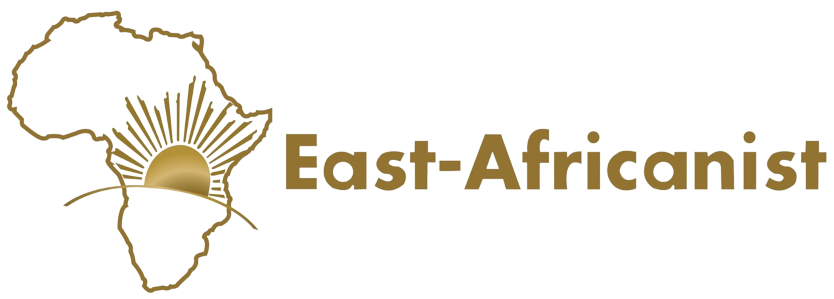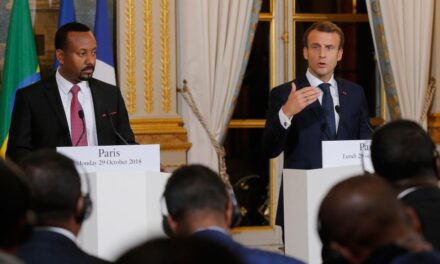Author: Vivian Amuna (For African Arguments)
“That people in my refugee settlement would fight to the death for a seat to watch a football match is not normal. But there is hope”
 South Sudanese refugees arriving in Imvepi settlement in northern Uganda, fleeing deadly war and hunger in their country, in 2017. Credit: Kieran Doherty/Oxfam.
South Sudanese refugees arriving in Imvepi settlement in northern Uganda, fleeing deadly war and hunger in their country, in 2017. Credit: Kieran Doherty/Oxfam.
15 December will mark five years since the start of South Sudan’s conflict in 2013. The war has torn apart communities within South Sudan and fractured relationships even among South Sudanese refugees. The most vivid illustration of these deep inter-ethnic divisions came this June when a group of refugees where I live, in Rhino settlement in Uganda’s Arua district, gathered to watch the Brazil vs Switzerland World Cup match. An argument over a seat in the hall triggered fighting that quickly escalated and eventually left four refugees dead.
That people would fight to death for a seat to watch a football match is not normal, rational behaviour. It is the consequence of the fighting that has put fissures among us, the psychological trauma that makes us quick to anger, and the societal normalisation of violence that allows youth to kill with too much ease. All of this makes it hard for different ethnicities – especially Dinka and Nuer – to live together peacefully, even outside of South Sudan.
Following decades of fighting, South Sudan gained its independence from Sudan in 2011, but hopes of a peaceful future were dashed when fighting broke out in Juba five years ago. Since then, the conflict has spread across the country and led to immense loss of life and property. Almost 400,000 people have been killed and over 4 million people displaced. At least 6.1 million people (or 59% of the total population) are acutely food insecure and have to rely on humanitarian assistance for their survival. The South Sudan displacement crisis is now the largest in Africa and the third largest globally after Syria and Afghanistan.
Half of those who have fled their homes now live across the borders in Uganda, Ethiopia or Sudan. But despite being away from the war, the effects of the conflict are ever-present. Though the news cycle for this clash in Rhino passed quickly, for example, South Sudanese refugees were left reeling. The fighting left many nursing injuries, resulted in destroyed homes and property, and displaced many women and children. The police intervened, several arrests we made, and, following the incident, refugees were segregated by ethnicity. This is a tragic reality: that we are segregated in a simple bid to keep the peace.
But I know that South Sudanese can live together. Organisations like the Youth Social Advocacy Team (YSAT), a refugee-led community-based group, are working to sensitise and create awareness of the importance of coexisting peacefully despite political and ethnic differences. We work to reconcile communities through continuous dialogue, trainings and campaigns using music, sports, radio and social media. We know that healing relationships among South Sudanese, wherever we are, will ultimately contribute to building a more peaceful South Sudan.
For the past three months, we’ve been training and working with a group of about thirty peace ambassadors in same area where the June fighting started. These young refugees are learning skills in conflict resolution, mediation and peace building. They are gaining confidence to be agents of peace. They told us this week that there has already been an impact: people in the community living together, mixing more among different ethnic groups.
But resources are limited. Most money for the refugee response is channelled through UN agencies, big international NGOs, and sometimes national organisations. But refugee-led initiatives like YSAT are best-placed to help heal the divides among South Sudanese. We know the histories of our conflicts and have borne the consequences of violence. We are designing creative strategies to impact change, but we struggle to find funds to implement our ideas, to transform our communities.
South Sudanese organisations and partners are working to acknowledge the efforts refugees are making to build peace using the hashtag #SSRefugees4Peace. As the situation in South Sudan remains precarious, we hope that the UN Refugee Agency (UNHCR), international NGOs and donors will invest more in work that brings South Sudanese communities together. They must do this not just to avoid costly or disruptive insecurity, but to save lives, and ultimately support South Sudanese in our search for a peaceful future.


